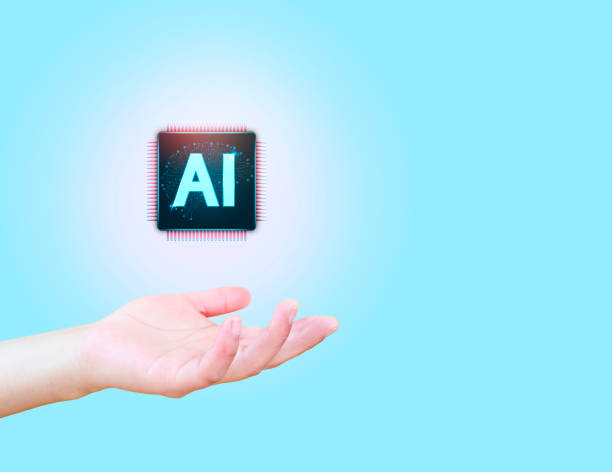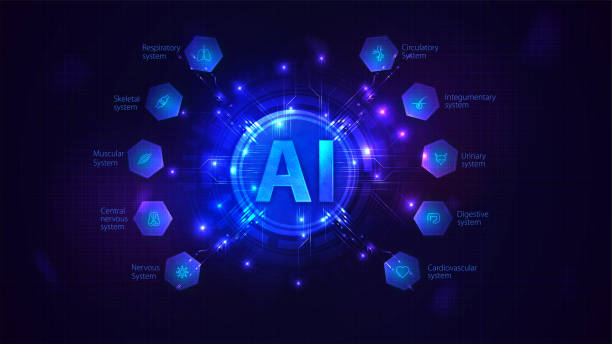Getting to Know the World of Mobile AI Applications
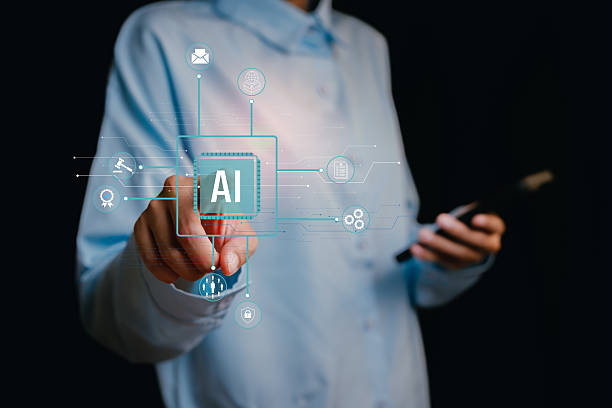
Artificial Intelligence (AI) is rapidly transforming various aspects of our lives, and mobile AI applications are no exception.
From virtual assistants to photo editing tools and language learning programs, mobile AI apps help us perform daily tasks more efficiently and intelligently.
In this chapter, we will explore the concept of #ArtificialIntelligence and its place in mobile phones.
Mobile AI applications, using complex algorithms, are capable of analyzing data, learning from experiences, and providing intelligent responses.
For example, a translation app can automatically detect and translate different languages, or a photo editing app can automatically adjust the light and color of photos.
In fact, mobile AI applications provide users with new possibilities by mimicking human cognitive abilities.
What is Artificial Intelligence? Simply put, it refers to the ability of a machine or computer system to perform tasks that typically require human intelligence.
These tasks include learning, reasoning, problem-solving, understanding natural language, and recognizing patterns.
Mobile AI applications use these capabilities to provide diverse services to users.
Developing mobile AI applications requires specialized knowledge in various fields, including computer science, statistics, and machine learning.
With technological advancements and increased processing power of mobile phones, mobile AI applications are becoming increasingly complex and efficient.
Tired of losing customers due to poor e-commerce website design? With Rasaweb, solve this problem forever!
✅ Increase sales and visitor-to-customer conversion rates
✅ Smooth and engaging user experience for your customers⚡ Get Free Consultation
Exploring Types of Mobile AI Applications and Their Uses

Mobile AI applications are used in various fields and can meet diverse user needs.
In this chapter, we will examine different categories of mobile AI applications and their common uses.
One of the most widely used types of mobile AI applications are virtual assistants.
These assistants, such as Siri and Google Assistant, can answer user questions, set reminders, make calls, and perform many other tasks vocally.
Also, mobile AI applications are very popular in the field of photo and video editing.
These applications can automatically adjust the light and color of photos, remove unwanted objects, and add special effects to images.
In language learning, mobile AI applications can help users learn new vocabulary, practice grammar, and improve their listening and speaking skills.
Mobile AI applications also have numerous uses in the health sector.
These applications can diagnose disease symptoms, suggest appropriate diets, and provide suitable exercise routines.
Finally, mobile AI applications can also create new experiences for users in the entertainment field.
These applications can suggest personalized music, design intelligent games, and provide interactive stories.
Meanwhile, #Security of mobile AI applications is also of particular importance.
Developers must ensure that their applications are protected against cyber attacks and unauthorized access.
Using strong encryption and two-factor authentication can help increase the security of mobile AI applications.
Furthermore, users should be careful to download applications from trusted sources and pay attention to application access permissions.
Mobile AI applications are evolving rapidly and are expected to play a more significant role in our lives in the future.
With technological advancements, mobile AI applications will be able to perform more complex tasks and provide more personalized services.
How to Choose the Right Mobile AI Application
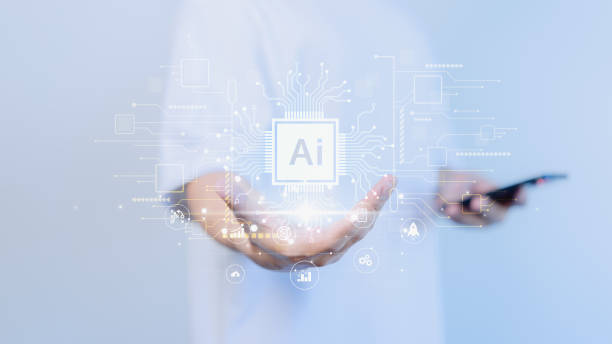
Choosing the right mobile AI application can be challenging, especially given the large number of applications available in the market.
In this chapter, we will provide key tips for selecting the appropriate mobile AI application.
The first step is to determine your needs.
Before downloading any application, ask yourself exactly what you need.
Are you looking for a virtual assistant? Do you want to edit your photos? Or do you want to learn a new language? By defining your needs, you can narrow down your search.
The second step is to check user reviews.
Before downloading any application, check user reviews in app stores.
User reviews can provide useful information about the application’s quality, efficiency, and security.
The third step is to pay attention to the application’s access permissions.
Before installing any application, pay attention to its access permissions.
Does the application access information that you deem unnecessary? If so, refrain from installing it.
The fourth step is to review the application’s privacy policy.
Before using any application, read its privacy policy.
Ensure that your personal information is kept secure and confidential.
The fifth step is to test the application before purchasing.
Many mobile AI applications offer a free trial version.
Take advantage of this opportunity and test the application before buying it.
By following these tips, you can choose the right #MobileAIApplication and benefit from its advantages.
Remember that mobile AI applications are powerful tools, but they should be used responsibly and consciously.
| Feature | Description |
|---|---|
| Accuracy | The degree of correctness in the application’s performance |
| Speed | The speed of data processing by the application |
| Security | The level of protection for user’s personal information |
| Ease of Use | The simplicity of working with the application |
| Support | The quality of technical support provided |
How to Optimize Your Use of Mobile AI Applications
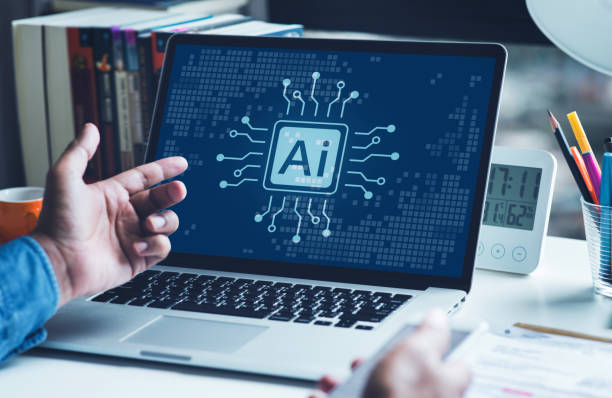
Correct and optimal use of mobile AI applications can significantly increase your productivity and efficiency.
In this chapter, we will provide strategies for optimizing your use of mobile AI applications.
The first step is to become fully familiar with the application’s features.
Before using any application, review all its features and settings.
By doing this, you can take advantage of all the application’s capabilities.
The second step is to personalize the application’s settings.
Many mobile AI applications allow you to customize your settings.
By personalizing the settings, you can configure the application to suit your needs.
The third step is to use the application under appropriate conditions.
Some mobile AI applications require an internet connection.
Before using these applications, ensure that you are connected to the internet.
The fourth step is regular application updates.
Developers constantly update their applications to fix bugs and add new features.
By regularly updating the application, you can benefit from the latest features and improvements.
The fifth step is to protect your privacy.
When using mobile AI applications, be mindful of your personal information.
Avoid disclosing sensitive information in applications.
By following these tips, you can optimally use #MobileAIApplications and benefit from their advantages.
Remember that mobile AI applications are powerful tools, but they should be used responsibly and consciously.
For example, a mobile AI translation app can help you interact with people of any language, or a mobile AI financial management app can provide you with the best solutions for better financial management by analyzing expenses and incomes.
Do you have an e-commerce website but your sales aren’t what you expect? Rasaweb solves your problem forever with professional e-commerce website design!
✅ Significant increase in conversion rates and sales
✅ Unparalleled user experience for your customers
⚡ Click for a free consultation with Rasaweb!
Exploring Challenges and Limitations of Mobile AI Applications

Despite numerous advantages, mobile AI applications also face challenges and limitations.
In this chapter, we will discuss these challenges and limitations.
One of the most significant challenges is the limited hardware resources of mobile phones.
Mobile phones have less processing power and memory compared to desktop computers.
These limitations restrict the possibility of executing complex AI algorithms on mobile phones.
Another challenge is the reliance on an internet connection.
Many mobile AI applications require an internet connection to process data and provide services.
This dependency makes it difficult to use these applications in areas with limited internet access.
The third challenge relates to privacy issues.
Mobile AI applications need users’ personal information to provide services.
The collection and processing of this information can raise concerns about user privacy.
The fourth challenge is accuracy and reliability.
AI algorithms are not yet perfect and may, in some cases, provide inaccurate results.
This issue can be problematic in sensitive applications, such as disease diagnosis.
The fifth challenge is data bias.
AI algorithms learn based on the data they are given.
If this data is biased, the algorithm will also be biased and provide inaccurate results.
By being aware of these challenges and limitations, mobile AI applications can be used more consciously and responsibly.
Mobile AI application developers should strive to address these challenges and increase the reliability and security of their applications.
A mobile AI translation app, the best app, can help you translate various texts with high accuracy using complex algorithms.
A Look at the Future of Mobile AI Applications
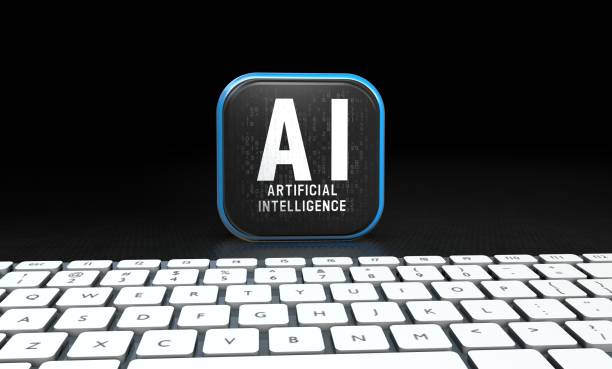
The future of mobile AI applications appears very bright and promising.
With technological advancements and increased processing power of mobile phones, mobile AI applications will be able to perform more complex tasks and provide more personalized services.
One of the significant trends in the future is the increased use of deep learning in mobile AI applications.
Deep learning is a powerful machine learning method that can recognize complex patterns in data.
By using deep learning, mobile AI applications will be able to recognize images and sounds with greater accuracy, translate different languages more precisely, and provide more personalized recommendations.
Another trend is the increased use of Edge AI in mobile AI applications.
Edge AI refers to executing AI algorithms on the device itself, without requiring an internet connection.
By using Edge AI, mobile AI applications will be able to provide users with the necessary services quickly and offline.
Furthermore, mobile AI applications are expected to find more uses in new fields such as health, education, and transportation.
For example, mobile AI applications can be used for disease diagnosis, providing personalized education, and traffic management.
Mobile AI applications, with the help of machine learning capabilities and data pattern recognition, will be able to provide suitable solutions.
Ultimately, the #Future of mobile AI applications largely depends on the innovation and creativity of developers.
By introducing new ideas and utilizing novel technologies, mobile AI applications can be transformed into more powerful and practical tools.
Mobile AI applications offer users a new world of possibilities and can make our lives more efficient and intelligent.
Protecting Privacy When Using Mobile AI Applications
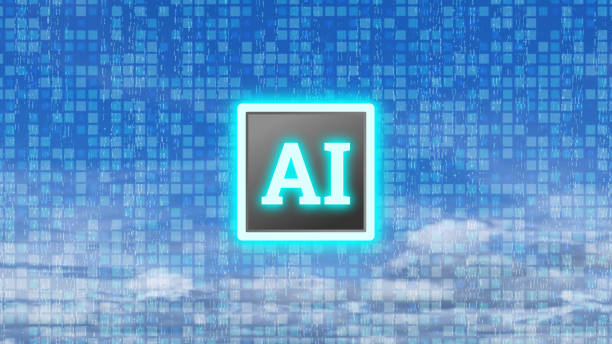
Protecting privacy in the era of mobile AI applications is of particular importance.
Since these applications access a large volume of users’ personal data, it is essential for users to protect their privacy with full awareness of potential risks.
One of the most important measures is to carefully read the application’s privacy policy.
Before installing any application, thoroughly read its privacy policy and ensure that you agree with how your personal information is collected and used.
Pay attention to the application’s access permissions.
When installing an application, pay attention to its access permissions.
Does the application access information that you deem unnecessary? If so, refrain from installing it.
Check the application’s privacy settings.
Many mobile AI applications allow you to change your privacy settings.
Review these settings and ensure they are set according to your preferences.
Avoid disclosing sensitive information in applications.
Refrain from disclosing sensitive information, such as credit card numbers, passwords, and personal information in applications.
Use security applications.
Use security applications to protect your mobile phone from malware and cyber attacks.
#Privacy in mobile AI applications should be a priority, and by following the mentioned tips, personal information can be protected.
By following these tips, you can protect your privacy when using mobile AI applications.
Remember that your privacy is your right and must be protected.
Mobile AI application developers must respect user privacy and avoid unnecessary collection and use of personal information.
Mobile AI applications should provide appropriate solutions for data security to users.
Ethical Issues in the Development and Use of Mobile AI Applications

The development and use of mobile AI applications come with numerous ethical issues.
One of the most important issues is algorithmic bias.
AI algorithms learn based on the data they are given.
If this data is biased, the algorithm will also be biased and provide inaccurate results.
This issue can lead to discrimination in applications such as employment, lending, and law enforcement.
Another issue is algorithmic transparency.
Many AI algorithms are very complex, and understanding how they work is difficult.
This lack of transparency can reduce user trust in these algorithms.
The third issue is accountability.
If an AI algorithm makes a mistake and causes damage, who is responsible? The developer? The user? Or the algorithm itself? The fourth issue is employment.
With the advancement of AI, many jobs may become automated.
This issue can lead to widespread unemployment.
The fifth issue is control.
Who should control AI algorithms? The government? Companies? Or the users themselves? #EthicalIssues of mobile AI applications must be considered, and developers should strive to reduce their negative impacts.
| Ethical Issue | Description |
|---|---|
| Algorithmic Bias | Discrimination in results due to biased data |
| Lack of Transparency | Difficulty in understanding how algorithms work |
| Accountability | Unclear responsibility in case of error |
| Employment | Threat to jobs due to automation |
| Control | Unclear controlling entity for algorithms |
To solve these ethical issues, developers, policymakers, and users must collaborate and establish regulations that ensure the responsible use of AI.
Mobile AI applications should be developed with ethical principles in mind to benefit society.
Are you concerned about your e-commerce website’s low conversion rate and not achieving your desired sales?
Rasaweb is your specialized solution for having a successful e-commerce website.
✅ Significant increase in conversion rates and sales
✅ Professional and user-friendly design to attract customer satisfaction
⚡ Ready for a transformation in online sales? Get a free consultation!
Important Tips for Mobile AI Application Developers
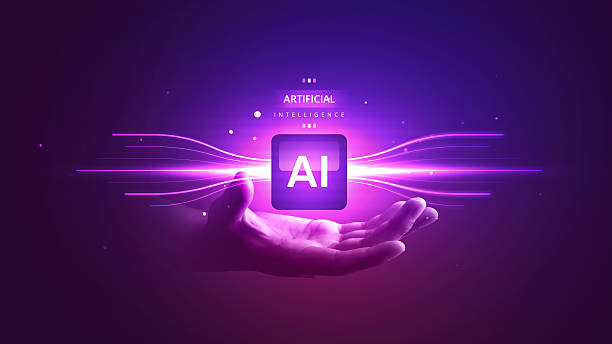
Developing mobile AI applications requires specialized knowledge and skills.
In this chapter, we will provide important tips for mobile AI application developers.
The first tip is to focus on user needs.
Before starting development, carefully examine user needs and design an application that meets these needs.
The second tip is to choose appropriate algorithms.
There are various AI algorithms, each suitable for specific applications.
Select an algorithm that is appropriate for your intended application.
The third tip is to collect sufficient data.
AI algorithms require data for learning.
Collect enough data and ensure that this data is of high quality.
The fourth tip is to evaluate application performance.
After developing the application, carefully evaluate its performance and ensure that it functions as expected.
The fifth tip is to maintain application security.
Mobile AI applications access sensitive information.
Ensure the application’s security and prevent unauthorized access to user information.
#ApplicationDevelopment for mobile AI requires expertise and experience, and by following the mentioned tips, high-quality and practical applications can be produced.
A successful mobile AI application requires a strong development team.
Mobile AI application developers should also pay attention to ethical issues and develop applications that benefit society.
Mobile AI applications must be practical and secure to gain user satisfaction.
Mobile AI applications should always be updated and improved to adapt to new user needs.
Summary and Conclusion
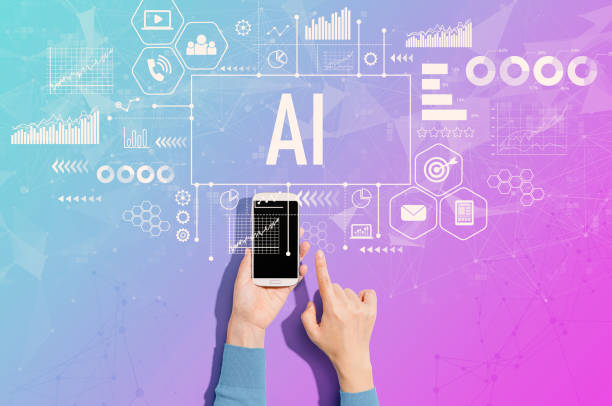
In this article, we comprehensively examined mobile AI applications.
From understanding basic concepts to exploring challenges, limitations, and ethical issues, we aimed to provide a complete and holistic view of this emerging technology.
Mobile AI applications are developing at an increasing pace and have high potential to improve our lives.
From virtual assistants to photo editing tools and language learning programs, these applications can help us perform daily tasks more efficiently and intelligently.
However, the use of this technology also comes with challenges and limitations.
Limited hardware resources, reliance on internet connectivity, privacy issues, and algorithmic bias are among these challenges.
Furthermore, numerous ethical issues exist in the development and use of mobile AI applications that must be addressed.
By being aware of these challenges and limitations, mobile AI applications can be used more consciously and responsibly.
Developers, policymakers, and users must collaborate and establish regulations that ensure the responsible use of AI.
Mobile AI applications are powerful tools that can benefit society, but they must be used responsibly and consciously.
#MobileAIAplications have a bright future ahead and, with technological advancements, will play a more significant role in our lives.
In conclusion, we hope that this article has provided useful information about mobile AI applications and helped you in choosing and optimally using this technology.
Mobile AI applications, with the help of artificial intelligence, have brought about a major transformation in the world of technology.
Frequently Asked Questions
| No. | Question | Answer |
|---|---|---|
| 1 | What is a mobile AI application? | It is an application that implements artificial intelligence capabilities such as machine learning, natural language processing, or computer vision to perform intelligent tasks on mobile devices. |
| 2 | Name a few examples of mobile AI applications. | Voice assistants (e.g., Siri, Google Assistant), augmented reality camera filters (e.g., Snapchat, Instagram), facial recognition systems, and language translation applications. |
| 3 | How do mobile AI applications work? | Some run AI models directly on-device, while others use cloud-based processing for heavier computations. |
| 4 | What are the advantages of using AI in mobile applications? | Improved user experience through personalization, task automation, increased efficiency, and the provision of innovative and intelligent features. |
| 5 | What are the challenges in developing mobile AI applications? | Hardware limitations (RAM, processor), battery consumption, the need for optimized models, and issues related to data privacy. |
| 6 | What technologies are used to build mobile AI applications? | Frameworks such as TensorFlow Lite for Android and iOS, Core ML for iOS, and Google’s ML Kit. |
| 7 | How do mobile AI applications ensure user privacy? | By processing data locally on the device, reducing data transmission to servers, and using encryption and privacy preservation techniques. |
| 8 | What will the future of mobile AI applications be like? | It is expected that with advancements in mobile hardware and AI algorithms, these applications will become smarter, more efficient, and more integrated into daily life. |
| 9 | Can mobile AI applications work offline? | Yes, many can. AI models can be stored on the device and perform processing without an internet connection, such as facial recognition or offline translation. |
| 10 | What are the key features of a good mobile AI application? | High accuracy, suitable processing speed, optimized battery consumption, user-friendly interface, ability to learn and adapt, and user privacy protection. |
And other advertising services from Rasaweb Advertising Agency:
- Smart Conversion Rate Optimization: Transform user engagement with key page optimization.
- Smart Social Media: Designed for businesses aiming to increase click-through rates through key page optimization.
- Smart Website Development: An innovative service for increasing website traffic through precise audience targeting.
- Smart SEO: A blend of creativity and technology for online growth through Google Ads management.
- Smart Brand Identity: Designed for businesses looking to improve SEO rankings by using real data.
And over a hundred other services in the field of internet advertising, advertising consultation, and organizational solutions.
Internet Advertising | Advertising Strategy | Advertorials
Resources
Best Mobile AI Applications – Faradars Magazine
Best Mobile AI Applications in 2024 – Zoomit
Best AI Applications for Mobile – Digiato
Best Free AI Apps for Android and iPhone – HamyarWP
? Rasaweb Afarin Digital Marketing Agency, your strategic partner on the path to online brilliance and sustainable business growth. Keep your brand at its peak with our professional services in SEO-optimized website design and digital marketing.
📍 Tehran, Mirdamad Street, Next to Central Bank, Kazeroon South Alley, Ramin Alley, No. 6

